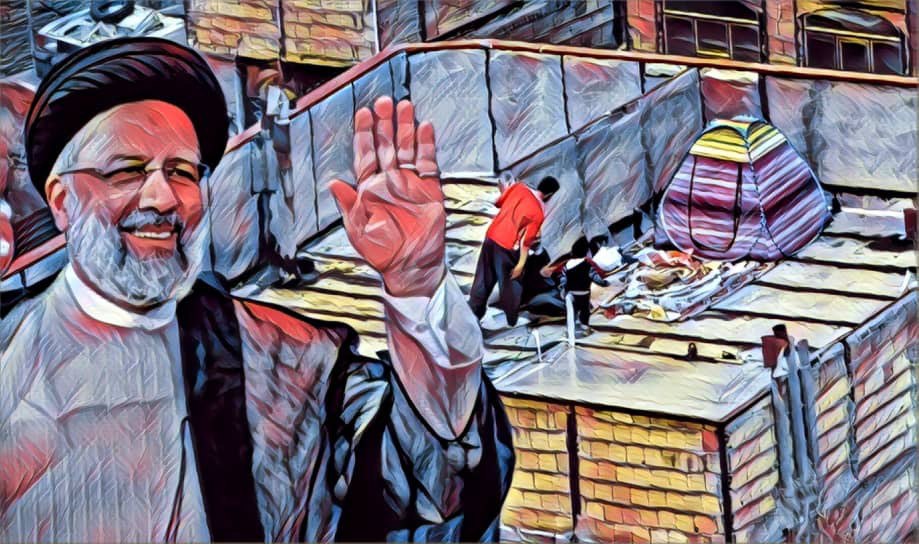Housing and Nothing Else
Housing and Nothing Else According to Iran Gate, the performance of Ebrahim Raisi’s government has reached a point where Iranian citizens are at their lowest purchasing power in the housing market. Official reports on this matter are not being published, and the government prevents the public from knowing the state of the housing market. However, investigations show that Tehran residents have never seen housing take up such a high and heavy share of household expenses in history.
Observations and reports from the housing market indicate a sharp increase in the share of housing in Iranian household expenses. On the other hand, reports in official media suggest phenomena like living in trailers and renting trailers for storing personal belongings. This increase in housing share has forced Iranian households to cut expenses like healthcare, food, and clothing.
In Search of a Roof
The unprecedented and uncontrolled rise in housing prices across the country, especially in metropolises, has caused the lower and middle-income segments of society to face a shrinking household budget. Although the government has not released housing market statistics in the past seven months, field observations by domestic media show
that citizens’ purchasing power in the housing market has reached a historic low since the formation of the modern nation-state in Iran. Iranians have never faced such a crisis of homelessness and poor housing conditions in the past century, a phenomenon attributed to the strange and unconventional policies of Ebrahim Raisi’s government in managing the country’s economy.
Many lower-income segments of society have been forced to migrate negatively from big cities to smaller towns and, in some cases, to villages. There are also instances of trailer rentals in Tehran aimed at storing household items, which are either stored on the outskirts of Tehran due to negative migration or because the reduced size of homes no longer allows their use by their owners.
50% Share of Housing in Expenses
Research shows that for a normal life with minimal spending in various sectors, each citizen should allocate between 28 to 30 percent of their expenses to housing. However, this ratio in today’s Iran is not only far from these standards but is also on the brink of entering the 40 percent range. Published statistics indicate that the share of housing in urban household expenses in Iran has reached a historic high of 38.5 percent, a peak unprecedented in modern Iranian history, indicating the dire economic situation and the shrinking household budget of ordinary people.
Monitoring these statistics shows that in the years following the Islamic Revolution of 1979, there was a sudden and continuous increase in the share of housing in urban and rural household expenses. In the capital, this figure has reached a dangerous and unbelievable 52 percent, meaning that an average Tehran household spends more than half of its income just to secure a roof over their head.
Housing Instead of Food, Healthcare, and Culture
The increase in housing costs mentioned earlier means a reduction in the share of other expenses. For example, compared to 2011, Iranian households have, on average, reduced healthcare expenses by 15 percent. The budget allocated to cultural activities has also decreased by over 8 percent in the past 12 years. Interestingly, the share of healthcare has decreased by more than 6 percent since the beginning of Raisi’s government, and cultural expenses have faced a reduction of about 45 percent.
In other words, it can be said that Ebrahim Raisi and his government have managed the economy in such a way that they have reduced the share of healthcare and culture as much as the entire decade of the 90s. In just the past two years, people have been under such pressure that they have been forced to cut back on family healthcare and cultural expenses just to secure a roof over their heads.
Regrettably, it is evident in Tehran that not only have culture and healthcare taken a smaller share, but food and clothing expenses have also decreased by 3 percent in the past two years. These statistics mean that Ebrahim Raisi’s government has made a complete raid on the ordinary people’s budget and directly funneled it into the pockets of housing market brokers.
This is while Ebrahim Raisi, in his election campaign, promised to build one million housing units annually, a promise that has not only not been fulfilled but has also faced a decrease in construction rates in the country. Many believe that the failure to fulfill Raisi’s unsupported slogan also exerted psychological pressure on the housing market, driving housing prices to rise more sharply.
What is the Real Housing Inflation? Part Two
English
View this article in English

